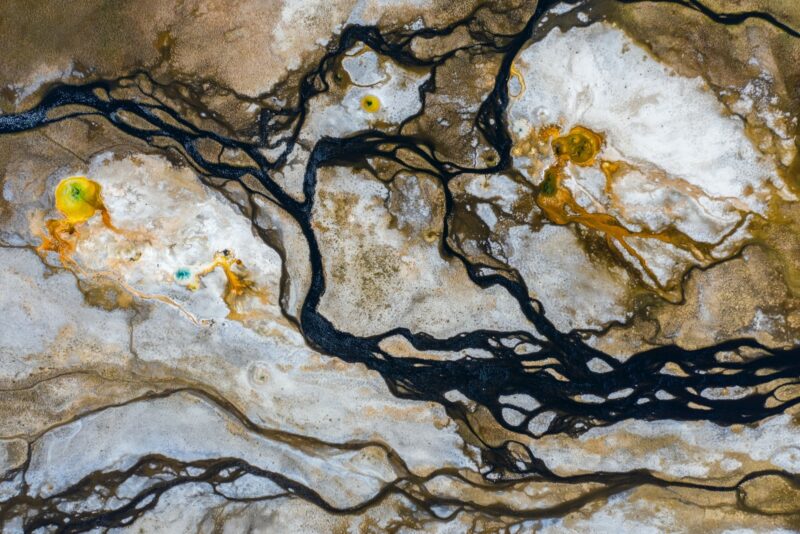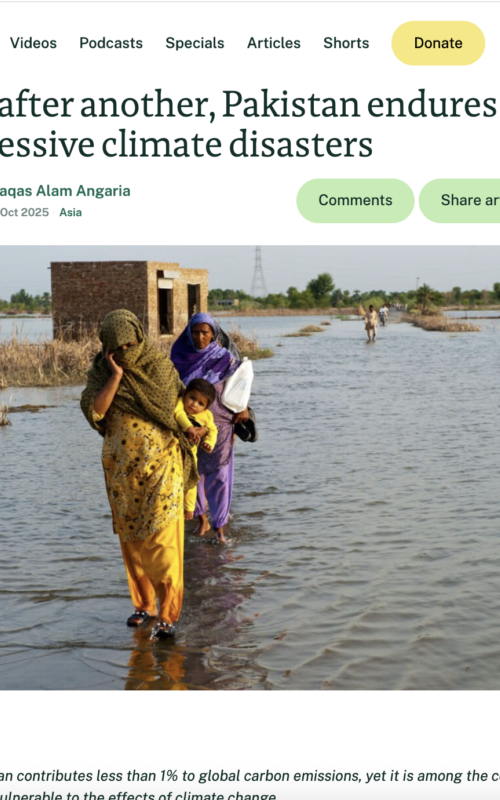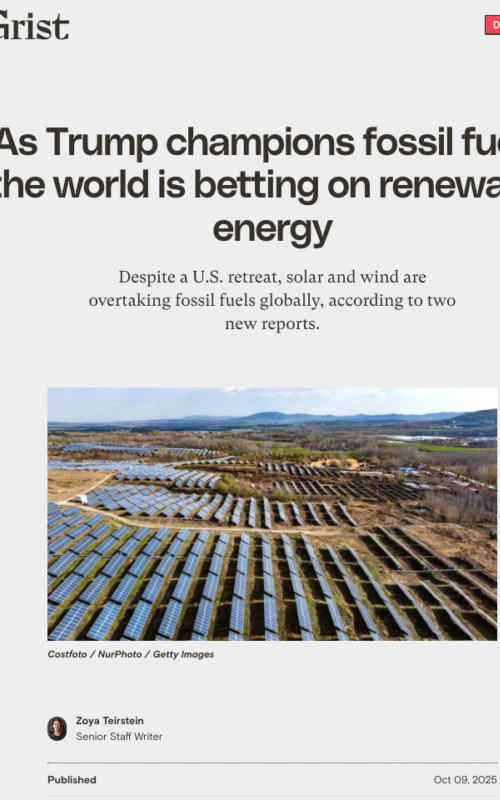Media coverage
Share


AP News
The UN Environment Program’s Emissions Gap report says global temperatures now predicted to reach 2.3-2.5°C, down from 2.6-2.8°C last year. While this is progress, we must go faster. Our CEO Bill Hare told AP that the numbers indicate “a lack of political will”.

The Straits Times
Climate and energy policy analyst Thomas Houlie said Indonesia is lagging despite its vast renewable potential. “Its latest power grid plan delayed a lot of the renewable deployment until after 2030 and includes near-term increases in fossil-fuel generation,” said Mr Houlie.

Agence Gabonaise de Presse
Gabon officially validated its NDC3.0 on October 22. Through this NDC, the country has committed to not only reducing greenhouse gas emissions across the energy, transport, agriculture, and industry sectors, but also enhancing its net carbon sink capacity.

Climate Home News
Labelling heavy industry like steel as “hard-to-abate” has shaped policy and business action in ways that risk undermining global efforts to cut emissions, writes Bill Hare.

Euronews
“Keeping warming to 1.5°C now hinges on one thing: speed,” says Bill Hare, in response to the State of Climate Action 2025 report.

AP News
New WMO data is "alarming and worrying" our CEO Bill Hare told AP News.“This is a very clear warning sign the world is heading into an extremely dangerous state–and this is driven by the continued expansion of fossil fuel development, globally.”

The Rising Nepal
Manjeet Dhakal said that recent floods and landslides across South Asia are not isolated events; they are clear signals of a rapidly escalating climate emergency.

Mongabay
Fahad Saeed explained to Mongabay why Pakistan is victim to compounding climate extremes. “Pakistan’s vulnerability is due to its geography. In 1,600 kilometers of latitudinal distance, Pakistan has the [world’s] second-highest peak in the north, to low-elevation land in the south. Any change in global climate impacts Pakistan the most.”

Climate Home News
Angola has scaled back its targets for reducing emissions in its new national climate plan. While the biggest emitters need to do more, “it’s also important that smaller emitters put forward the highest possible ambition,” Bill Hare said, adding that development aid cuts are affecting countries in need of climate finance.

Grist
“The IEA has, consistently over the last couple of decades, way underestimated how fast renewables are growing,” said Robert Brecha, a senior climate and energy adviser at Climate Analytics, a global climate science and policy institute, who was not involved in either the Ember or IEA report. “I don’t see any reason to believe that renewables won’t double by 2030.”